
A Japanese stage actor in Yokohama is terminally ill, and is determined to end his life, but doesn’t know to have inherited a large sum of money from Switzerland.

Hong Kong-set religious drama.
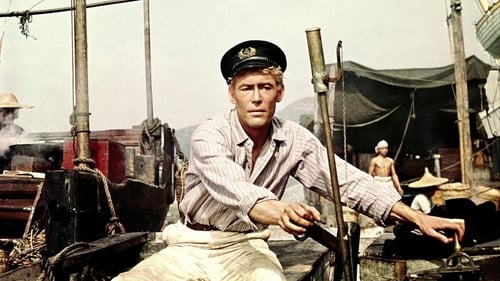
Du-Ramin
James Burke (Peter O'Toole) é o primeiro oficial de um navio a vapor que durante um furacão, covardemente abandona o navio deixando seus passageiros para morrer afogados. Desonrado, Lord Jim procura uma forma de consertar seu erro - não somente perante os olhos da comissão da marinha inglesa, como também para si próprio. Assim, ele recebe a dura missão de entregar um carregamento de dinamite para uma tribo de nativos em algum lugar inexplorado do oriente e acaba se unindo aos nativos em sua luta contra O General (Eli Wallach), um brutal e rude opressor. Em sua jornada de aventuras, ele se encontra com Brown (James Mason), um pirata educado e cavalheiro que tem um plano misterioso o qual irá colocá-lo num confronto com seu verdadeiro destino. Agora, Lord Jim terá que aprender a diferença entre um herói e um covarde, uma verdade que é impiedosa e sem fuga.
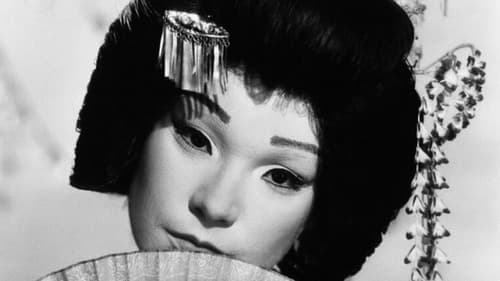
Kenichi Takata
Famed movie director Paul Robaix breaks with tradition by not casting his actress-comedienne wife, Lucy Dell, in his latest film production, a version of Madame Butterfly. Undaunted, the resourceful Lucy wings her way to Tokyo and, masquerading as a Japanese geisha, lands the coveted role from her unsuspecting husband! But in front of the cameras (and behind the pancake makeup), Lucy faces greater challenges: her lecherous leading man - and a husband who is beginning to realize that his talented new "discovery" seems vaguely familiar...

Two obaachans become fast friends listening to music in front of a record store. They both boast about their loving sons but in reality, one had just escaped a retirement home and the other was looking for an escape from her son and daughter-in-law. With nowhere to go, the two wander around, befriending a cosmetics salesman and a kind waitress who give them beer. This biting social satire starring two memorable grandmothers, scripted by Yôko Mizuki, picked up on Japan’s aging population problem far ahead of its time.

A case of mistaken identity in which a woman assumes the role of widow to a man killed in a train accident.

Alongside Tokyo's Sumida River is a ragpickers' settlement known as Ant Village. One night, a young Catholic girl, Satoko Kitahara, who has been baptized under the name of Maria, comes to offer her services. However, Ant Village is not just an ordinary vagrants' community but a fine autonomous organization, and as the municipal authorities have long been demanding that the people of Ant Village leave the site, Satoko is utilized to publicize the Village and win public sympathy. While being utilized in this manner, Satoko is nevertheless glad to be able to help the people of Ant Village, especially the children, and when the summer vacation comes she decides to take the children on an excursion to Hakone. To raise funds for this purpose she becomes a rag-picker herself.
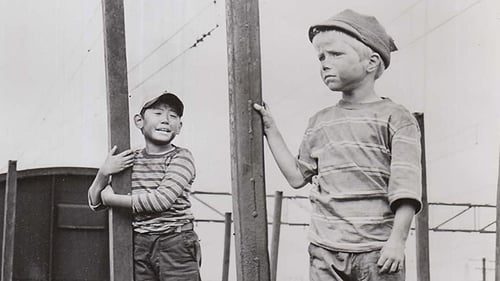
Um avião a caminho do Japão é forçado a pousar no mar perto da costa japonesa. Um pequeno menino americano sobrevive à escavação, mas é separado do resto dos passageiros e da tripulação e é levado por um pescador japonês, que leva o menino de volta à sua aldeia. O menino é ajudado pelo filho do pescador, mas quando vê a polícia japonesa invadindo a vila, eles temem que tenham feito algo errado e fugido, embora a polícia esteja apenas procurando pelo menino desaparecido. Juntos, os dois rapazes viajam pelo interior do Japão, tentando evitar que a polícia os procure e se encontre com muitos tipos diferentes de pessoas ao longo do caminho.

Reiko's father
A sensitive young woman aged 22 fell in love with a middle aged man who was troubled by his unfaithful wife.
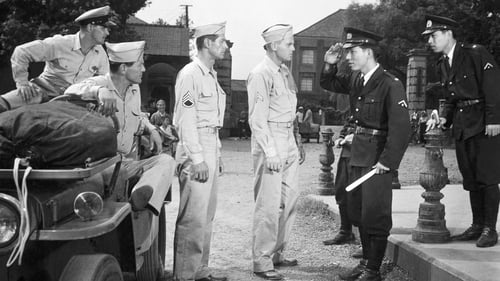
Sakayama
The staff of "Yank" magazine are among the first American troops into Tokyo after the Japanese surrender. Their mission: produce an issue of the magazine...in three days. To accomplish the seeming impossible, they reluctantly enlist the aid of black marketeer and arch-conniver Joe Butterfly, who sets them up in a palatial private mansion, complete with lovely daughter -- strictly against regulations. How much trouble can our heroes talk their way out of?

Shûji Nagaoka
The story of a professional nude model stalked by a bizarre, unknown man wearing a hideous mask.

Shinsaku was once a renowned playwright, has now been left behind by journalism and is living a lethargic life in Oiso. His family is concerned with Shinsaku regaining his old vigor as a writer and Sakie, his daughter, finding a suitable match, while the family is struggling with the losses of war.
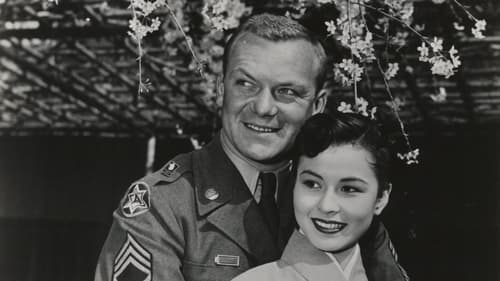
Konoya
A racist sergeant stationed in post-war Japan finds himself softening towards the children and falling for a local woman.

The Kumakichi Ishida family lived happily in a small house in Shibuya while their mansion in Azabu was requisitioned by the occupation forces. When the residence is released to them, Mrs. Ishida wants to turn it into a Western style hotel to recoup their fortunes, but returns to Shibuya, swindled and sober.

Carmen falls in love with an artist in this sequel to Carmen Comes Home. The film is noted for being entirely shot with canted (Dutch) camera angles.

Hanzô Sakai

Atsuko is an office secretary who is also her family's primary source of income and caretaker in postwar Japan.

Sampei Isono
Bittersweet shomin-geki drama by Keigo Kimura

During the war a man is bitten by a creature which looks like a cross between a bear and an ape in the jungle. Later he starts to transform to a monster like creature who kills with his claw like fingers.
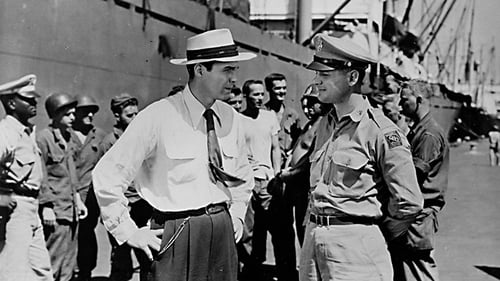
Mr. Matsuto
A Communist spy ring in Japan is hard at work trying to sabotage the American war effort during the Korean War, using kidnapping, murder and a disturbed former kamikaze pilot. A U.S. secret agent, posing as a reporter, is dispatched to Tokyo to put a stop to these nefarious activities.
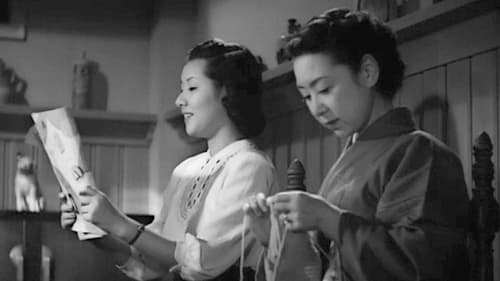
Jou Uchida, the Professor
Setsuko is unhappily to Mimura, an engineer with no job and a bad drinking habit. She had always been in love with Hiroshi but both of them failed to propose when Hiroshi left for France a few years ago. Now he is back and Mariko (Setsuko's sister) tries to reunite them. She too is secretly in love with Hiroshi.
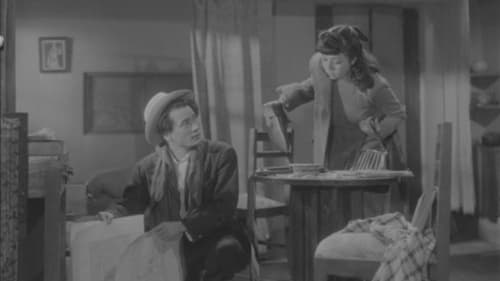
Kamekichi Dan

Sandou

A love triangle among a girl, her poor boyfriend, and a rich company president.

Third film of the Bannai Tarao series starring Chiezo Kataoka

Ôkura
Shogi, a Japanese form of chess, is a game that requires skill and determination. When poor sandal-maker Sakata decides to pursue his dream of becoming the Shogi Grand Master Champion, everything is at stake – including his family. What will it cost for Sakata to follow his passion?

Second film of the Bannai Tarao series starring Chiezo Kataoka

平松(楽団員)

Nakamura
Hisshoka is a 1945 Drama film directed by four Japanese directors.

Japanese Warmovie

Tsunetami, father
Japanese propaganda film about the Normanton Incident.

Pretty Oshige is deceived by her first love. After this, she lives a hard lifestyle, working at a number of jobs. Her only pleasure is her nephew, who eventually becomes a merchant marine. When Oshige meets her old love ten years later, she is able to forgive him and even thank him for the path her life has taken.

Inoue was something of a rarity in the sense, that he was a Shochiku house director who seems to have worked mostly in period films, often with big stars like Hasegawa or Bando. "Sumidagawa", named after the river that runs through Tokyo, is also a period film, but thematically a modern one. All the themes that you associate with the normal Shochiku women's films set in the present day are in this film, just in a different context: love, the planning of a marriage, career, family relations and societal melancholy. There is no action or swordplay.

A hostile Chinese nurse (Yamaguchi) who works in an orphanage is won over by the care and commitment of the Japanese doctor (Sano) who treats her wards. Disease outbreaks and family obligations, however, threaten to torpedo their budding romance.

Professor Katae
Emi Ota and her friend Okiku stay briefly at a mountain inn and then return to Tokyo. Later, Nanmura, a soldier on leave, steps on an ornamental hairpin in the public bath at the inn. Emi writes to the inn saying she has lost a hairpin and, when she discovers that it injured Nanmura, returns to apologize. The longer term visitors at the inn meet together to discuss the hairpin incident. These include a grumpy Professor, a young couple Mr and Mrs Hiroyasu, and an old man staying with his two grandsons. They hope to see a romance blossom between Nanmura and Emi, after Nanmura declares that there is something almost poetic in finding a hairpin in the bath.

Hana wa itsuwarazu (1941) is the second directorial work by Shochiku's Oba Hideo. Oba had previously worked as an assistant director to Shimizu Hiroshi and penned films for Shimazu Yasujiro. In this early effort, he is not stylistically very far from either, but then again all Shochiku directors resemble each other to a point. The film is an everyday romance for younger audiences, full of clean, ideal human beings.
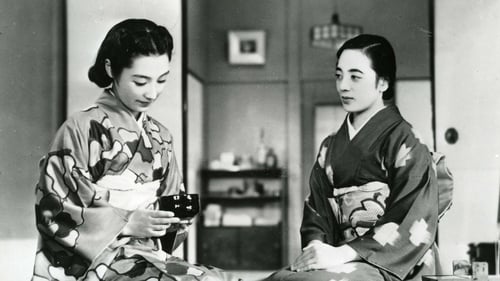
Shinichiro
After the death of her husband, Mrs Toda and her youngest daughter receive a frosty welcome from the extended family.

A story of a store that makes Tabi socks.

Yasuhiko Shima
Adaptation of Kishida Kunio's novel. Set against the backdrop of a power struggle within a hospital, depicts the love lives of the director's daughter, the administrative director, a doctor, and a nurse.

Takehiko Kawada
Melodrama about a talented singer who finally makes her debut

Naomi Tazawa (Hiroko Kawasaki), who works at Isetan Department Store, was told by an executive at a film company (Ken Uehara), that he was going to make a film about her. She was scouted to become an actress, but she held strong. Around that time, her adoptive father dies, and at the time of his death, she learns that her real father was a man of high rank.

A young doctor, Kozo Tsumura, falls for young nurse Katsue Takaishi. But she's got a secret: she's a widow with a son. Kozo and Katsue decide to run away to Kyoto, but her child suddenly became sick and she just missed the train and Kozo. She makes it to Kyoto finally, but is unable to meet him. Plus she isn't accepted into Kyoto society. She goes back to her hometown and tries to forget him. She quits the hospital to concentrate on her singing. She makes her professional debut with the hit "Aizen Katsura". Kozo is in the audience.

Okabe
The movie follows a young woman (Kinuyo Tanaka), a daughter of a high-ranking businessman and his neglected mistress, as she struggles to ease her mother's loneliness, while also having an affair with her father's subordinate.

Kampei Fujii
Pre-war Asakusa was a riotous district of cabarets, dance-halls and brothels - a striking backdrop for Shimazu's story of innocence and experience. Pretty, young Reiko is the new dancer in an infamous theatre troupe, and her fellow performers try to protect her virtue in a land of vice. Meanwhile, an ageing actor wants to be a hero off stage as well as on, and the troupe matriarch Marie has to keep them all together.
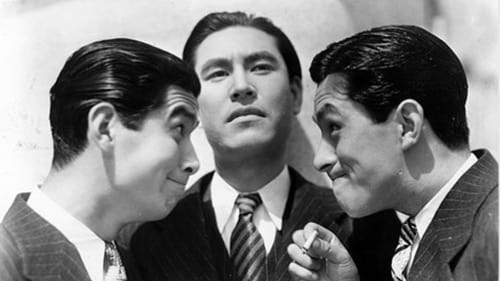
Ana - manager
Three men vying for the same job end up chasing the same girl in this comedy-drama from noted Japanese director Yasujiro Shimazu.

Mr. Yokoyama
A Japanese screwball comedy about the battle between the sexes: two timid men, egged on by their wives, end up in a bitter duel over an expensive lace handkerchief.

Komiya
A professor, Komiya, and his bossy wife, Tokio, are to look after Setsuko, their high-spirited niece from Osaka. Despite being a minor, Setsuko is a liberated woman who does whatever she wants, including smoking. She even convinces Koyima to take her to a geisha house. When she gets rather tipsy, the professor calls Okada, one of his students, to take her home. The wife becomes suspicious of Setsuko when she sees Okada bringing her home.

The eldest daughter of a noble family is in love with an aviator while being courted by a fellow aristocrat she thinks is a dullard. Told from the perspective of Ryota. In this second part, we learn that Akemi is pregnant...

The eldest daughter of a noble family is in love with an aviator while being courted by a fellow aristocrat she thinks is a dullard. This part is told from the perspective of Akemi.

A musical film made for the inauguration of Shochiku's Ofuna Studio, with an all-star cast of the era.

Maruyu
A melodrama about a businessman's relations with the three women in his life.
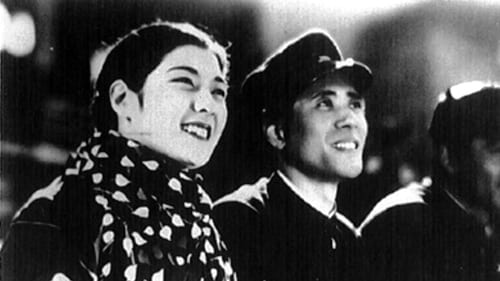
Lecturer
In a Tokyo boarding house a group of students and recent graduates struggle to complete their studies and find jobs. Considered a lost film.
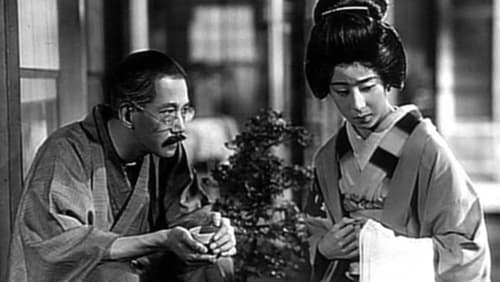
Shozo Fukushima
Family drama. A middle-aged father has just married off his third daughter, but still has his nine year old son to raise whom he resents as he was unwanted. (British Film Institute)

Domestic comedy involving a strong wife and a "henpecked" husband taking place in a family-run judo school.

Toshitaro
A period piece about the love of a wealthy blind woman, a teacher of koto and shamisen, and her devoted manservant. Based on a novella by Tanizaki Junichiro.

Researcher
This pair of gentle yet witty and inventive comedies from the director of The Neighbour's Wife and Mine typify both the formal experimentation of early Japanese sound cinema and the social milieux that Shochiku tended to depict. 'Virtually plotless, and feeling more like comic sketches than fully developed stories,' writes Arthur Nolletti, Jr, 'these light comedies, or farces, take a wholly trivial matter (often a socially embarrassing situation) and use it as a springboard for a succession of gags.' Much of the films' distinction comes from the wit of Gosho's direction, the imaginative use of the new sound technology and the charm of the acting, particularly of the heroines (Kinuyo Tanaka in Bride; Hiroko Kawasaki in Groom). Yet in both films, Gosho finds room for some shrewd observation of character and environment, subtly exploring the values and assumptions of the suburban petit bourgeoisie.

Living Things a film by Heinosuke Gosho

That Night's Woman

Yamamoto
The poor novelist Yamamoto is writing his novel, determined and with a headband around his head. With him, the novelist who is always in trouble paying his bills, is the girl Saya who becomes the model for his novel. Saya however is in love with a young driver. When he is forced to move into a spa town as the result of the jealousy of another man Saya is terribly sad. But with the help of Yamamoto the driver's rival can be revealed and Saya can finally be with her beloved.

Wakahara, husband of Namiko
The story deals with Fuji, nicknamed Waka-danna (Young Master), the star athlete on his university's rugby team. The son of a wealthy soy sauce manufacturer, Fuji basks in the glory of his athletic celebrity. Attracting the attention of admiring young women, Fuji resists family pressure to settle down and marry after college. Instead, he spends much of his time drinking and womanizing, behavior which eventually leads the college officials to expel him from the team.
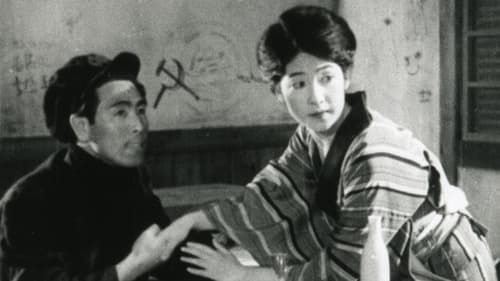
Mizuhara, Omitsu's husband
In the formally ravishing Every-Night Dreams, set in the dockside neighborhoods of Tokyo, a single mother works tirelessly as a Ginza bar hostess to ensure a better life for her young son—until her long-lost husband returns.

Miura - a Painter
Set in the port city of Yokohama, two girls, Sunako and Dora who attend a Christian school, pledge to be friends. But when a youth named Henry appears on his motorcycle and offers to take Sunako for a ride, we know that this friendship won't last and that the lives of both girls will change in ways they are barely able to comprehend, and can do little to change.

A young couple is harrased by an uncle.

Saida
This pair of gentle yet witty and inventive comedies from the director of The Neighbour's Wife and Mine typify both the formal experimentation of early Japanese sound cinema and the social milieux that Shochiku tended to depict. 'Virtually plotless, and feeling more like comic sketches than fully developed stories,' writes Arthur Nolletti, Jr, 'these light comedies, or farces, take a wholly trivial matter (often a socially embarrassing situation) and use it as a springboard for a succession of gags.' Much of the films' distinction comes from the wit of Gosho's direction, the imaginative use of the new sound technology and the charm of the acting, particularly of the heroines (Kinuyo Tanaka in Bride; Hiroko Kawasaki in Groom). Yet in both films, Gosho finds room for some shrewd observation of character and environment, subtly exploring the values and assumptions of the suburban petit bourgeoisie.


Taichiro Saiki
When a young man inherits his father's lucrative business, he cheats the system to set up three of his college friends with jobs.

Yoshi
Neste filme do início de carreira de Yasujiro Ozu, acompanhamos o drama de um jovem estudante que reprova no exame de sua faculdade, enquanto seus colegas conseguem a aprovação.


Kazuemon Fuwa
This 1932 adaptation is the earliest sound version of the ever-popular and much-filmed Chushingura story of the loyal 47 retainers who avenged their feudal lord after he was obliged to commit hara-kiri due to the machinations of a villainous courtier. As the first sound version of the classic narrative, the film was something of an event, and employed a stellar cast, who give a roster of memorable performances. Director Teinosuke Kinugasa was primarily a specialist in jidai-geki (period films), such as the internationally celebrated Gate of Hell (Jigokumon, 1953), and although he is now most famous as the maker of the avant-garde silent films A Page of Madness (Kurutta ichipeji, 1926) and Crossroads (Jujiro, 1928), Chushingura is in fact more typical of his output than those experimental works. The film ranked third in that year’s Kinema Junpo critics’ poll, and Joseph Anderson and Donald Richie noted that 'not only the sound but the quick cutting was admired by many critics.

Katô
A student comes up with various schemes to avoid paying a tailor the money he owes him. Considered to be a lost film.
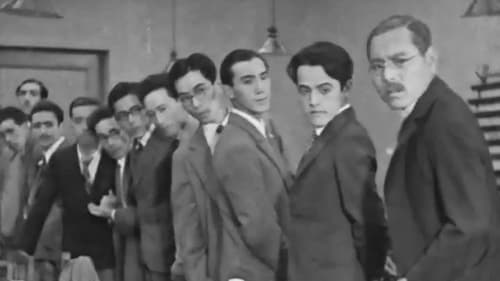
Omura Sensei
Mr. Omura, a teacher, leads a group of male students in an outdoor drill. One slight, comic young man, Shinji Okajima, has no shirt under his jacket; he scratches at fleas and makes faces behind Omura's back. Jump ahead several years, Shinji is married with three children. He sells insurance, and on the company's annual bonus day, he protests when an older worker is fired. Shinji loses his own job as a result, and he and his wife must find ways to cope. Lassitude, pride, the demands and needs of young children, and relationships from bygone school days all play a part in the outcome of their struggle.

Sano
Two people are fascinated by a sculptor's statue. The film is lost.

Shigeru Sakai, writer
Michiko gets pregnant after a rape. She marries a boring business partner of her father to avoid the shame. Later she meets the rapist again who is now a union leader in opposition of her husband.

Teki no taishou
Graduate Okajima finds his old-fashioned beard makes life difficult in a comedy exploring the tension between tradition and modernity.

Tatsuji Saitô
Two reporters find that they are repeatedly beaten to the scoop by a new female journaist, 'young miss'. They decide to team up with her to investigate a secret club for wealthy voyeurs. Considered to be a lost film.

Kôtarô Furukawa
A salaryman finds some money in the street and gets a reward for returning it to its rightful owner. However his colleagues immediately start borrowing money and selling him things he doesn't need, much to his wife's annoyance. Considered to be a lost film.

Kentarô Yumaji
A young couple jump into the sea as part of a suicide pact. The man is rescued and subsequently discovers that his lover is also alive and working in a dance hall. Considered to be a lost film.

Suda, doctor
The film revolves around a desperate man who commits a crime in order to support his family, and the moral dilemma the policeman who tracks him down finds himself in.

Shôzô
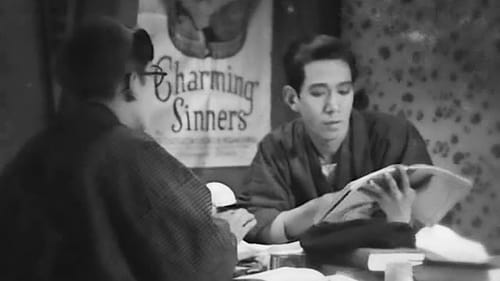
Student
This bittersweet comedy tells the tale of a group of college roommates attempting to cheat their way through their exams. As the title goes, things don't work out for our roguish main character, but his classmates soon find themselves in a similarly sorry state...

Mitsuo Kitamiya
Bored in his marriage, a dentist flirts with a young woman on a train. However he soon finds himself embroiled in a series of misunderstandings with his wife, the young woman and her husband. Considered to be a lost film.
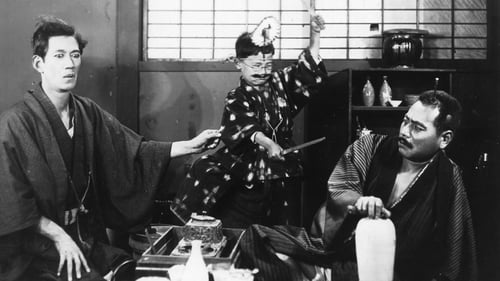
Bunkichi
A kidnapped boy proves to be more than his abductor can handle.

Shintarô Tsukamoto
When Sakamoto is made redundant he cannot bring himself to tell his wife. Instead he investigates other employment opportunities. Considered to be a lost film.

Joji Matsuda
A young couple flee their disapproving parents, get lost of Mt. Akagi and find a cache of gold protected by the ghost of a gangster.
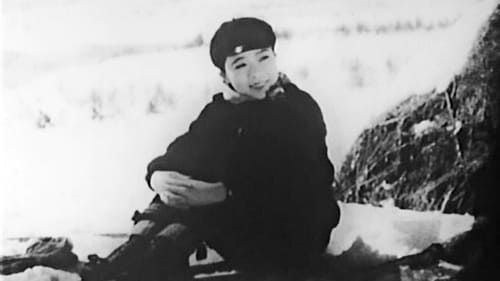
Shuichi Yamamoto
Students Watanabe and Yamamoto unknowingly compete for the same girl.
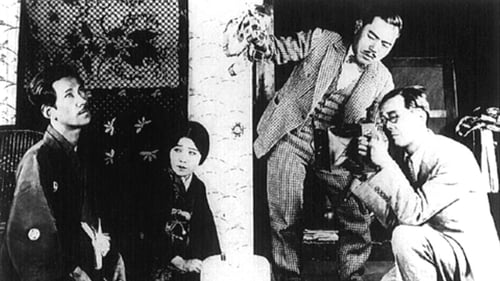
Ichirô Takai
A hen-pecked man works as his artist wife's model and a house-husband. When her patron flirts with her and humiliates him, he decides to get revenge by trying his own hand as a painter. Considered to be a lost film.

Tôsuke Yamada
Comedy about a young man juggling several girlfriends. Considered to be a lost film.

Jôji
A married man falls for a dancer and his wife's uncle hires a private detective to spy on him. Considered to be a lost film.
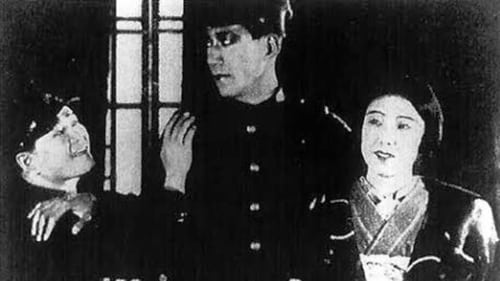
Chôkichi Okada
Lost silent film

A young man torn between love and friendship.





























































